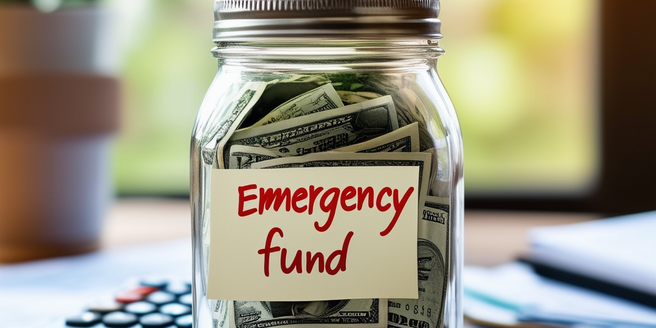Understanding the Importance of an Emergency Fund
An emergency fund is a cornerstone of personal finance, providing a safety net in times of unexpected expenses or income loss. This fund can often be a sigh of relief during medical emergencies or sudden job layoffs. It can also provide substantial help during external crises like natural disasters or pandemics, which might pose unexpected financial burdens. Having this fund means that you can handle unforeseen situations without immediately feeling the financial strain. It serves as your personal insurance, fostering financial stability and peace of mind. Without an emergency fund, you may find yourself resorting to high-interest debt options or dipping into retirement savings during challenging times. Realizing the importance of an emergency fund can be a motivating factor in jumpstarting your saving journey.
Step-by-Step Guide to Starting Your Emergency Fund
Begin the process by identifying a solid goal, typically equal to 3 to 6 months of living expenses, and open a dedicated savings account specifically for your emergency fund. This savings buffer can provide financial peace during unexpected events. Commence regular contributions to your fund, irrespective of the amount. Building a savings habit, possibly by automating contributions, can prevent you from forgetting or spending the money elsewhere. A needed discipline is to avoid using this account for frivolous expenses or non-emergency situations. Additionally, regularly review and adjust your goal to accommodate lifestyle changes, inflation, or differences in family size. Lastly, remember that taking the first step to start saving might feel intimidating, but the habit of saving, combined with discipline, perseverance, and consistency, ensures the achievement of your goal.
Ways to Stay Committed to Your Savings Goal
Maintaining commitment to your emergency fund goal can be tricky. Nevertheless, actively monitoring your progress and celebrating even minor victories, such as reaching a certain amount in your savings, can motivate and inspire you. This involves setting milestones that measure your progress, which ensure you’re proceeding effectively towards your goal. Consider automating your savings for a more effortless process, this guaranteed regular contribution prevents you from potentially skipping a month. Incorporate your savings goal into your financial plans, treating it as a part of your budget can ensure consistency and prevent the neglect of your savings goal. A useful technique is to stay motivated through visualization; imagining the financial security and peace mind your fund will provide can push you to keep going. Finally, finding an accountability partner ensures you stay on course; a trusted friend or family member who supports your goals and provides encouragement can turn a challenging journey into a rewarding shared experience.
Avoiding Common Pitfalls in Emergency Fund Management
Planning your finances is critical and requires clear goals, priority setting, and consistency to avoid inadequate savings and financial instability. People often make the mistake of using their emergency savings for non-essential expenditures, leading to financial vulnerability when unexpected costs arise. To maintain good financial health, it is essential to be committed to a well-defined, priority-based, consistent, and designated emergency fund. This provides protection against financial adversity and lays a solid foundation for your future. With prudent planning and wise decisions, you can establish and sustain a robust emergency fund, leading to sound financial health and sustainability.
Building Your Emergency Fund Faster: Tips and Tricks
If you’re looking to boost your savings, consider strategies like eliminating non-essential expenses, pursuing side jobs for extra income, utilizing high-yield savings accounts, saving any unexpected income, and directing any budget surplus into your savings. These steps entail a comprehensive review of your spending habits, identifying cost-cutting areas, and reprioritizing this money towards your savings.
Earning extra doesn’t always mean working a second full-time job; side gigs like freelancing, selling handmade items, pet sitting or tutoring can supplement your regular earnings. Don’t overlook the benefits of high-yield savings accounts; their higher-than-average interest rates will aid faster savings growth.
It’s important to channel large, unexpected funds such as inheritance, tax refunds or bonuses straight into your savings instead of spending them. Convert any surplus money at the end of your budget cycle directly towards your savings goal.
With disciplined habits, strategic steps, and a mindset of thrift, you can significantly speed up the building of a sizable emergency fund. These strategies are key to improving your financial health in the long run.


